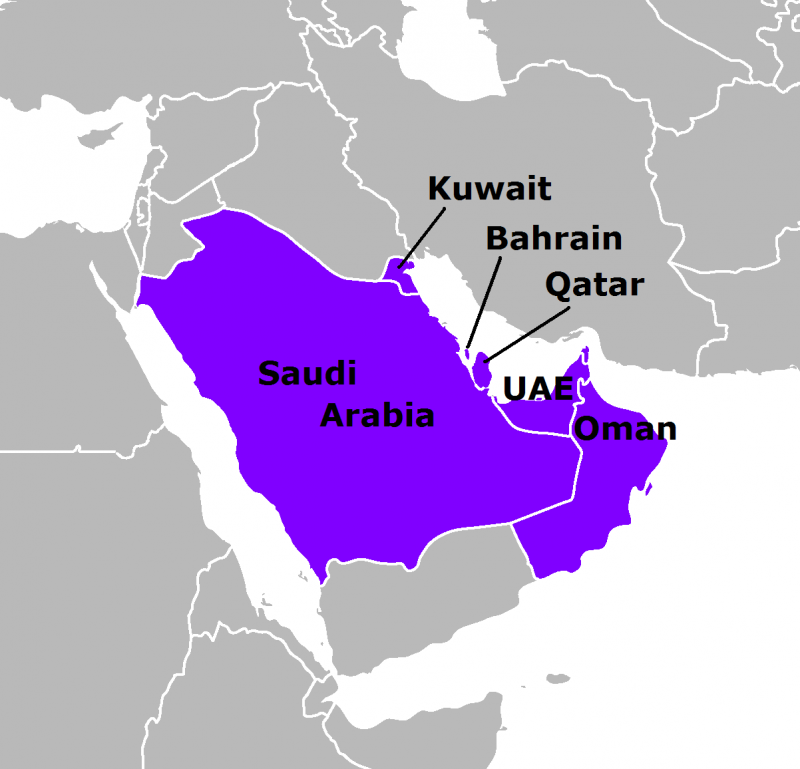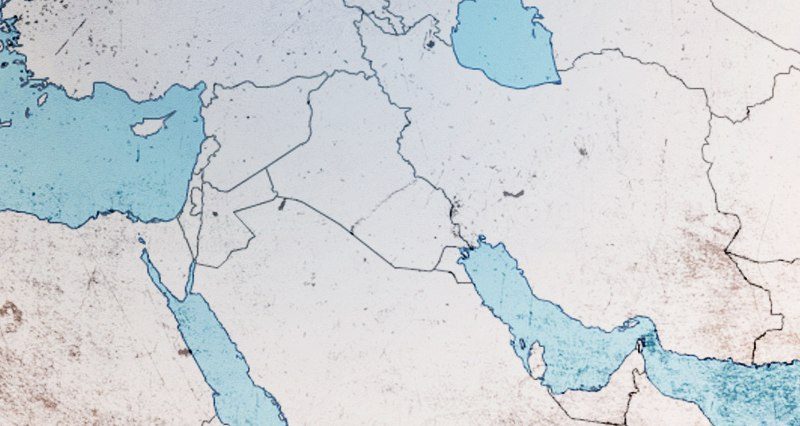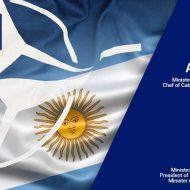The anti-Turkish activities of the United Arab Emirates (UAE) and the Saudi Arabia, which are, along with Israel, the closest allies of Anglo-Saxon imperialism, continue to intensify.
Ankara’s media war with the Riyadh administration and quarrels with the UAE in context of the recent events in Libya were the latest rings in a long chain of events.
Behind these conflicts lies the active foreign policy Turkey pursues in the Middle East and North Africa, and the concerns of the Gulf states, partially generated by forces pushing the political perspective they ultimately serve.
Another reason for these conflicts are the US-UK-Israel axis’ efforts to put pressure on Turkey via these countries.
It is clear that the rivalry with the Gulf needs to be thoroughly grasped and new policies must be developed to handle the issue. In an era in which the world and international diplomacy are being reshaped by the coronavirus pandemic, new possibilities and dangers are emerging.
TURKOPHOBIA IN THE GULF
It is possible to find the roots of a historical Turkish hostility in the Gulf sheikhdoms, which were established with the support and the organization of British imperialism against the Ottoman Empire.
However, just as it is irrational to pursue politics by rejecting the historical facts, it is also unhealthy for politics to be determined sheerly by history.
Therefore, it is not only meaningless to explain the Saudi and the Emirati opposition to Turkey with nothing but history, doing so would also lead to a narrow viewpoint.
The right way to understand the source of the problem is to examine the political, commercial and geopolitical conflict zones between Turkey and aforementioned countries, and to evaluate the impact of other major forces in the region in regard to these relations.
Foreign Ministry Spokesman Hami Aksoy’s answer to the question about the crisis with the UAE at a press conference on April 20, sums up the points of conflicts between Turkey and the Gulf states: “The UAE’s activities, not only in Libya, but also in Yemen, Syria and the Horn of Africa, are the realities of the international community.”

To further explain Turkey’s actions, such as:
1. Improving relations with Saudi Arabia and the UAE’s rival Qatar, and establishing a military base in the country,
2. establishing a military base in Somalia, which has a coast to the Bab el Mandeb, a strategically important chokepoint for the world oil trade and for the Gulf sheikhdoms, resulting in active involvement in politics in the Horn of Africa, particularly in Djibouti,
3. continued military actions and presence in Sudan, which has an important status amongst the African countries that has a coast with the Red Sea,
4. cooperation with Russia and Iran in Syria, while maintaining its influence over the opposition groups,
5. support for the Government of National Accord in the Libyan civil war against General Haftar’s forces, which are backed by the UAE and the Saudi leadership,
6. producing policies through the Muslim Brotherhood, which is a threat to the rule of Saudi Crown Prince Bin Salman and UAE Crown Prince Bin Zayid,
7. active involvement in the Palestinian issue,
8. cooperation with Iran in some conflict zones, which is perceived as a threat by Bin Salman and Bin Zayid.
THE GULF’S ANTI-TURKEY ACTIONS
Bin Salman and Bin Zayed have come up with different answers to fight these policies. In summary:
1. Targeting the pro-Turkish groups, Turkey’s military and intelligence presence in the country, by using General Haftar and some other groups in Libya,
2. organizing attacks against the Turkish military presence in Somalia,
3. provoking the opposition groups in Syria, and particularly in Idlib into actions against Turkey
4. provoking the Syrian government against Turkey, as seen from the recent Bin Zayid’s messages of friendship for the Syrian President Assad in the context of the fight against the Coronavirus pandemic and the latest statements of the US Special Representative for Syria, James Jeffrey,
5. purging pro-Turkish individuals and groups in Sudan,
6. producing anti-Turkish publications in the region through its media outlets,
7. pursuing policies in Egypt that could lead to an open conflict between Ankara and Cairo by spurring Turkish hostility which is already high because of Ankara’s support for the Muslim Brotherhood.
ACTIONS THAT TURKEY CAN TAKE
When we analyze the process, we can see that behind the Gulf countries’ hostility toward Turkey are not only their political interests, but also directives from the United States and Israel.
The further Turkey shifts away from America and the more Turkey begins to confront it, the more Riyadh and Abu Dhabi will become in response.
The UAE and Saudi Arabia’s anti-Turkish actions have gained momentum both during and after the July 15 American-backed coup attempt.
It is also well-known that Israel, in cooperation with the UAE and Saudi Arabia, makes policy decisions in the region not only against Iran, but also against Turkey, and propagates politics that aim at fostering hostility towards Turkey and Iran amongst the Arab nations instead of Israel.
Turkey could take the following actions to counter the UAE-Saudi alliance:
1. Deepening the cooperation with Russia and Iran in Syria, and even establishing direct contact with Damascus itself,
2. taking steps towards a cooperation with Russia in Libya which would deliver the final blow to Haftar forces which are already in a process of disintegration.
3. Terminating support for the Muslim Brotherhood and establishing equal relations with Cairo based on mutual respect, counteracting the Emirati-Saudi strategy of using Egypt against Turkey in the Arab world and in the Eastern Mediterranean. The normalization of relations with Egypt will also relieve Turkey in Libya and Sudan, allowing opportunities for further cooperation to arise.
4. Revealing Emirati and Saudi cooperation with Israel through its media outlets and non-governmental organizations, reducing the impact of their media sources throughout the region.
5. In terms of activities in the Horn of Africa, much like in Syria, our presence will be more effective if Turkish-Russian-Iranian cooperation is better established.
To sum up, deepening the existing alliances and forming new ones will restrict the aggressive politics of Prince Bin Salman and Bin Zayid and the US-UK-Israel axis behind them.
On the other hand, the Saudi leadership, just like everyone else, is aware that the United States has lost its influence in the region. For that reason, Riyadh is showing signs it is leaning toward rapprochement with Russia and China and perhaps even normalizing the relations with Iran, even if these signs are weak for the time being.
If strong alliances are formed within Turkey and the region, it can be expected that the Saudis will distance themselves from the US-Israel axis and end their aggressive policies against Ankara.
Turkey must not repeat the mistake that Iran made and try keep the diplomatic channels open until the last moment without compromising in terms of military matters.
As the Chinese war-strategist Sun Tzu says, “Ultimate excellence lies not in winning every battle, but in defeating the enemy without ever fighting.”









Leave a Reply